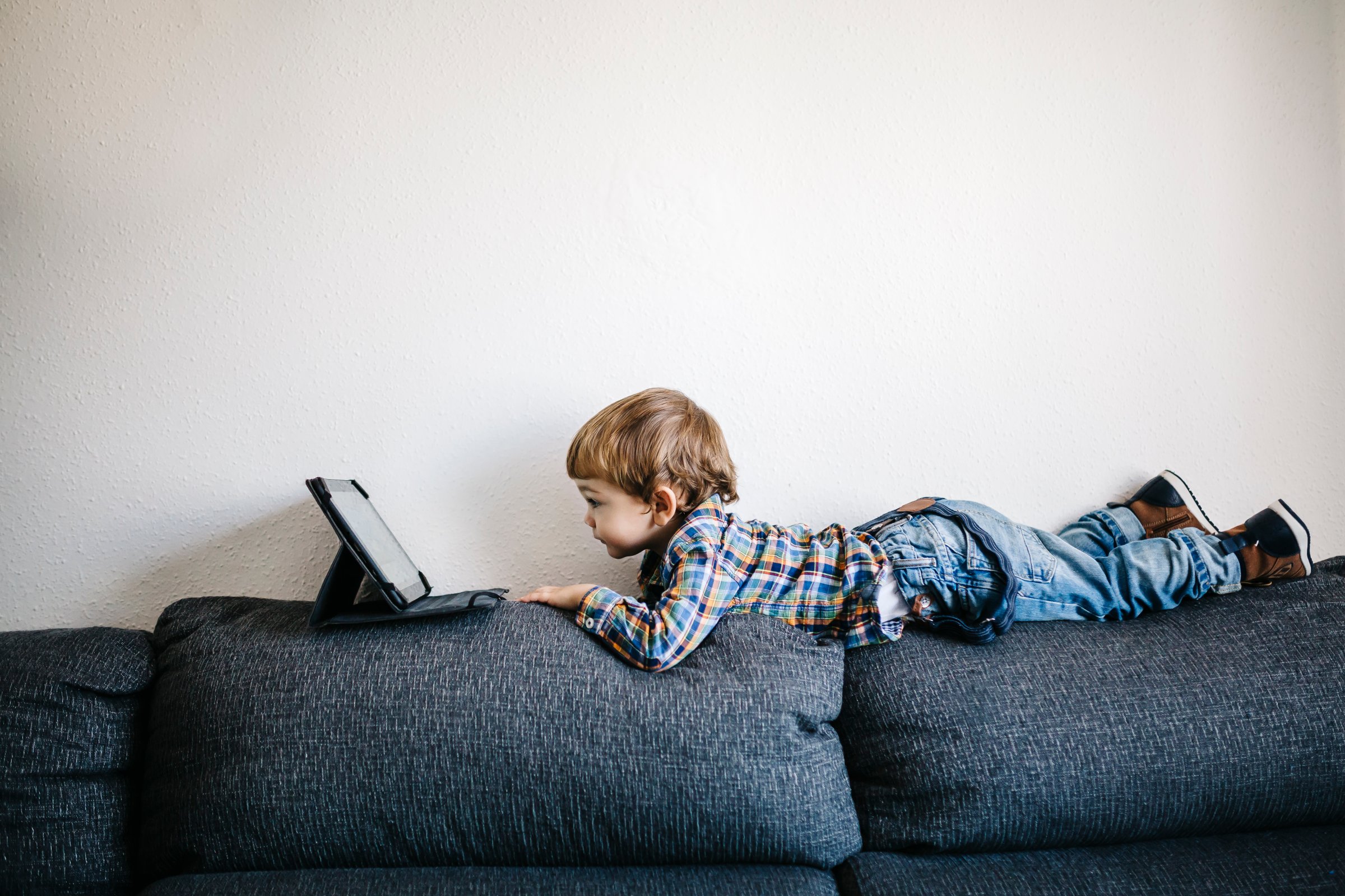
In 2011, the American Academy of Pediatrics (AAP) released a bold recommendation: children under the age of two should not watch any television, and slightly older children should be limited to two hours of screen time per day.
A recent report shows that children’s screen time continues to increase: in 2013, 38 percent of kids under two were found to have used a mobile device for media, compared to 10 percent in 2011. The number of children using mobile devices on a daily basis has more than doubled during this period – from 8 percent to 17 percent.
The AAP has announced that it will be revising its screen time policies this fall to reflect current trends in technology use among U.S. families.
This fast-growing media industry – and more specifically the growing market for children’s media – poses the inevitable questions for parents: whether screen time is bad for children and whether children can learn during screen time.
What children learn from screens
There is substantial evidence that preschool children can learn from educational media.
For example, a 2001 study showed that watching educational programs at ages two and three could improve academic skills, including reading, vocabulary and math. These kids performed better on standardized tests and general school readiness assessments, when tested some years later.
A more recent study that examined the long-term effects of watching “Sesame Street” from the time the show first aired in 1969 found that kids who watched the program showed better academic skills.
The researchers reported that children who lived in areas that had access to the show were about 14 percent less likely to fall behind in school than children who did not have access. This effect was especially pronounced for children living in socioeconomically disadvantaged areas.
Similar learning benefits have been reported for other educational programs as well. For example, one study reported that kindergarteners who viewed “Between the Lions” (a PBS show designed to promote reading) scored higher on standardized tests of reading skill than those who did not watch the show.
Here’s a cautionary note about infants
However, this does not mean that all children can learn from educational media, that every show is educational and that there aren’t better ways to learn.
Children do not necessarily learn from every television show they watch. The same 2001 study that reported that children who watch educational programs score better on standardized tests also reported that preschool children who watched noneducational, general audience programs showed poorer performance on standardized tests of vocabulary and math than those who did not.
Furthermore, there is little evidence that infants under the age of two can learn from educational media at all, including television and touchscreens.
In fact, it is unclear whether infants under two can even understand the content of what they see on television and whether they can transfer information that they see in a two-dimensional format to the real world.
Researchers who examined a popular educational DVD designed to teach 12- to 18-month-old infants new words found that not only did they show no gains in vocabulary, but also that the best improvement in vocabulary came when parents taught them new words.
Being wise about screen time
So, how should parents think about their kids’ screen time?
First, age matters. As mentioned above, preschoolers can learn from age-appropriate educational media. But, there is no evidence that infants can learn from screens. So parents should have very few expectations about what children under the age of two can gain from watching television.
Second, content matters. With the abundance of educational programming available for children these days, there is no reason to expose them to content aimed at a general audience, especially since watching adult-centered TV has been shown to lower academic skills in preschool children. Moreover, programs aimed at adults that have violence or aggressive behavior can encourage children to behave similarly.
Third, time matters. Having the television on all the time in the background has been shown to distract children so much that it lowers the quality of their play. Researchers have suggested that if screen time replaces time spent engaging in activities like talking to parents and peers or playing outside, it can be detrimental to various aspects of development.
Perhaps the most important finding to keep in mind about screen time is that children learn better from people than they do from screens until they are at least three years old.
So in the end, a little bit of screen time might be okay, but learning the traditional way – from parents or from peers – might always be the most effective medium for infants and young children.
This article originally appeared on The Conversation
More Must-Reads from TIME
- Cybersecurity Experts Are Sounding the Alarm on DOGE
- Meet the 2025 Women of the Year
- The Harsh Truth About Disability Inclusion
- Why Do More Young Adults Have Cancer?
- Colman Domingo Leads With Radical Love
- How to Get Better at Doing Things Alone
- Michelle Zauner Stares Down the Darkness
Contact us at letters@time.com